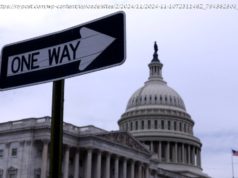The U. S. Supreme Court returned to the bench Monday to weigh a slate of cases, including the government’s push to add a question about citizenship to the 2020 Census.
May 13 (UPI) — The U. S. Supreme Court returned to the bench Monday to weigh a slate of cases, including the government’s push to add a question about citizenship to the 2020 Census.
In one of its first rulings of the day, justices allowed a class-action suit against Apple to move forward in a 5-4 decision. The suit accuses the tech giant of having a monopoly on apps. Consumer groups want to bring an antitrust suit against Apple for imposing a 30 percent fee on purchases made in the app store.
The high court cited the Illinois Brick precedent, in which indirect purchasers two or more steps removed from the original antitrust violator cannot sue.
« The plaintiffs purchased apps directly from Apple and therefore are direct purchasers under Illinois Brick, » Justice Brett Kavanagh wrote in his opinion. « At this early pleadings stage of the litigation, we do not assess the merits of the plaintiffs’ antitrust claims against Apple, nor do we consider any other defenses Apple might have.






